Written by Isaac Randozzi
Monday, 13 November 2006
Questions and photos of Jason by Isaac McKay-Randozzi
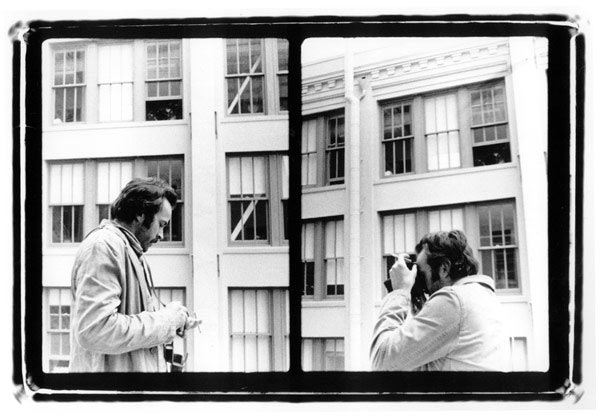 Someone once said, “talent lies in everyone, it just takes the right spark to set it off.” Jason Lee’s spark was skateboarding. Skating put him in the right place at the right time to get a spark off of something else, acting. Acting brought him into the world of the movie camera, which sparked off into photography. But his entry into to the visual arts started professionally with his direction of Stereo's classic film A Visual Sound, 1994. It has continued into this new century with photography and directing short films.
Someone once said, “talent lies in everyone, it just takes the right spark to set it off.” Jason Lee’s spark was skateboarding. Skating put him in the right place at the right time to get a spark off of something else, acting. Acting brought him into the world of the movie camera, which sparked off into photography. But his entry into to the visual arts started professionally with his direction of Stereo's classic film A Visual Sound, 1994. It has continued into this new century with photography and directing short films.As you'll read, Jason's interest and passion about photography runs just as deep as it does for skating and acting. His quiver ranges from the traditional 35mm cameras and large format Polaroids to glass plate negative monsters, like the one used to take the ghostly black and white portrait of Brian Gaberman that you'll see below. His work has appeared in Anthem Magazine, The Skateboard Mag., and Stereo Sound Agency ads. Another saying goes, "a photographer is only as good as the next project", he is currently working on a new project that will be in book form. Jason continues to push himself creatively and speaking as someone who has watched him grow from his early skating years, I'm sure it'll be something interesting to watch.
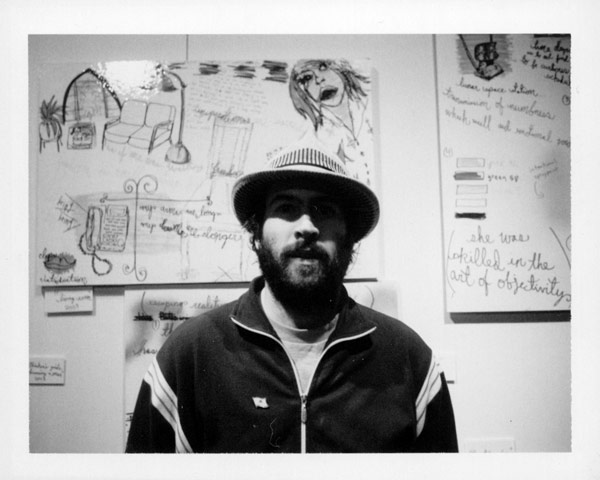 Age:
Age:36
Medium(s) of choice:
Photography, cinema and music.
Striped or non-striped socks?
Both
How are you today?
Well, thanks.
Why the hell are you doing an interview for a web site named Fecal Face Dot Com?
I have no idea.
What music gets you psyched up?
Cocteau Twins, Miles Davis, Chet Baker, Jazz in general, Mozart, Schubert, Rachmaninoff, Classical in general, Bjork, Midlake, Explosions in the Sky, Godspeed You! Black Emperor, 60s French and Bossanova, Radiohead, Hank Williams, Johnny Cash, Leonard Cohen, Nick Drake. It’s a long list, but probably not too dissimilar to what most folks’ lists would be.
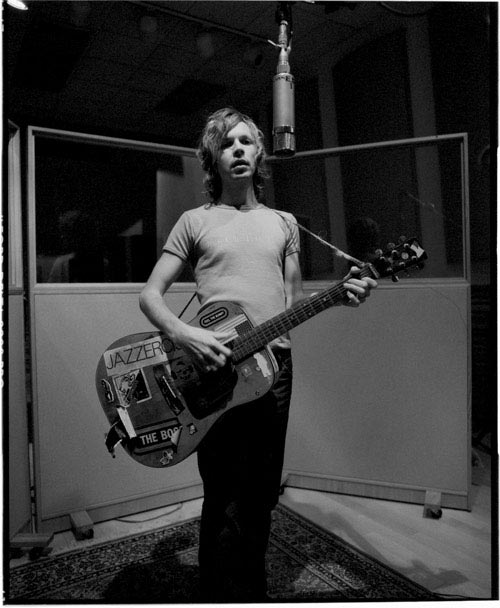 Skating, acting, directing and photography – all things that you have a more than normal aptitude for. Do you think if you never started skating that these talents would have eventually come out? Or was skating the thing that sparked it off for you? Skateboarding sparked it all and Mark Gonzales was a big influence.
Skating, acting, directing and photography – all things that you have a more than normal aptitude for. Do you think if you never started skating that these talents would have eventually come out? Or was skating the thing that sparked it off for you? Skateboarding sparked it all and Mark Gonzales was a big influence.It takes some concentrated effort to make time in your life and schedule to devote time to learning photography. What made you decide to do it? And how did you go about it?
I got serious about it from being an actor and being on sets and around cameras and people who know cameras.
How many years ago was that?
5 years ago.
What was it like to make out with Shannon Doherty? Is she a good kisser or is she all teeth?
I was nervous, so I could have been kissing bread. It didn’t matter; I just wanted to get it over with.
What camera did you first start learning on?
Leica, Bolex, Super 8 cameras.
How many cameras do you have and what are they?
A few dozen cameras, which range from 35mm all the way to 20”x24”.
Which are your favorite to use and why?
Large format most of the time because I use mainly Polaroid film with the bigger cameras, and I love that film, but I also love shooting less premeditated with the smaller cameras, like the Leicas and 6x7.
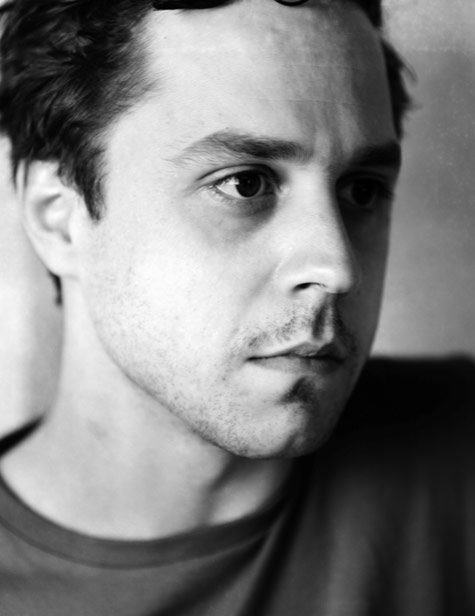 Do you prefer black and white or color?
Do you prefer black and white or color?Both.
What film do you use?
Mainly Polaroid, as I’m working on two separate series using that film, both color and b/w.
What photographers do you like?
Bresson is probably my favorite, or one of them. He was a real pro, and wasn’t afraid to make it all about the emotional experience. There was never anything “cool” about him; he was a true photographer who had a great eye, and I always respond well to sincerity over what’s “hip,” or overly arty. I believe in experimentation, but there must always be a point, or a reason; there must always be a purpose, and one who finds it interesting to be the center of attention, rather than the work itself, must know that they’re going about it all wrong.
What makes a good photograph, is it content, composition, printing techniques? Something else?
I think the composition and content, of course, are huge factors; it really is all about how it's done, and the film you use, etc, and when you get that certain feeling you know you've gotten it. It really is a feeling that you get and a damn good one. That's why photography to me is very much an art form.
Have you taken photo classes, or are you self-taught?
Self-taught, and got a lot of pointers from other photographers and cinematographers.
Do you spend time in the darkroom?
My darkroom is still in storage, but I plan on putting it back together again when I have the right space for it.
How free are you to take photos on the movie and TV sets you’ve been on?
I often shoot when I’m working, and I’ve even used backdrops and props, etc. from the EARL set to shoot people with for magazines. This usually happens during a lunch break or any downtime I can get.
I’ve heard that you have pretty decent art collection. Who’s stuff do you have and who are some of your favorites?
Gottfried Helnwein, Lovis Corinth, Kathe Kollwitz, Bresson, Mercedes Helnwein, Tobin Yelland, Chris Pastras, Chad Robertson, Alex Prager, Joel Sternfeld, Beth Riesgraf, Mark Gonzales, Rachell Sumpter, Clint Peterson, etc. Don’t really have a favorite, but there’s an older b/w print that Beth Riesgraf gave me a few years ago that always gives me a certain, and perfect feeling when I see it. I love it all.
What places would like most like to go to and take photos of, or at?
Right now, America, and that’s one of the projects I’m in the middle of.
Is that the project for Anthem Magazine? Or something else?
It’s for a book of strictly Polaroids that I’d like to put out by 2008. America and Americans, and capturing it all on Polaroid film. The book will be called “Instant America.”
How do you prioritize your busy schedule? Do you always have a camera on you?
I shoot as often as possible, which is a couple days a week.
I read in a publication that you read Charlie Chaplin’s biography. Have you seen “The Great Dictator”? If so what did you think of it?
I love all of his work CITY LIGHTS is nearly perfect.
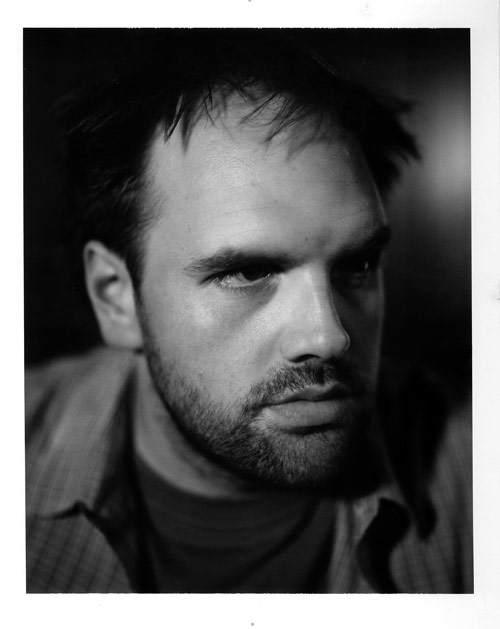 Nearly perfect? What would you have changed about it or done differently?
Nearly perfect? What would you have changed about it or done differently?Nothing, actually.
You’ve directed a couple of videos and you were recently editing a short film. What are those projects for?
A Beck video, a Midlake video, and my short film from this year, THE WHITE DOOR, which will be released on DVD, etc next year. THE WHITE DOOR is a 34-minute modern silent love story starring Giovanni Ribisi and Beth Riesgraf.
You seem to keep a very busy schedule, how do you keep it straight and remember it all?
If I weren’t this busy I’d probably be even crazier, so I love it; it keeps me alive.
Do you consider catsup a vegetable?
No.
How many interviews do you think you’ve done over the years?
Too many, but maybe not enough.
What is Niva Films? What part do you play in it?
A very small production company that Beth Riesgraf and I started a few years ago. We’ve made a few short films and will continue to grow it over the years and make features films, etc.
How is the Jason Lee Foundation for the Arts going?
No longer exists because of too much red tape in trying to get it set up to accept grants, etc. I still personally support artists and host exhibitions, though.
How long did you live in San Francisco?
Off and on during Stereo’s early SF days.
Where did you live?
With Greg Hunt and then Jeff Klindt; here and there.
What was your favorite part of living in S.F.?
The weather, and being young and getting to skate everyday and create art and design Stereo with Chris Pastras. A good, fresh time - those days, and skateboarding meant something different back then.
Do you think Burt Reynolds would make a good governor of California?
Absolutely.
What is your fascination with Burt? You’ve mentioned him during some of your movies and some of your mannerisms bear a resemblance on occasion.
Need I say more than SMOKEY AND THE BANDIT?
If you had 3 wishes, what would you wish for?
More time, more money to make films with, and for Polaroid to never discontinue its film, which may happen soon...
How much do you skate these days?
Not as much as I’d like to, but it often shows its lovely face in my dreams.
Are you going to pursue getting your photographs published or do you consider yourself, “Mr. Amateur on the freeway with a cupcake?” In other words, how much do you see yourself putting into photography given the time constraints and the responsibilities you have? Is it something you would want to do as another career down the line?
Photography has not only become important to me, it’s become vital. I think about it as much as I think about my family, or food. I’ve been published in Anthem all year and we’re going to make a book of all the images and have a show (they were all Polaroids for the issues) in Feb 2007. And I plan on releasing INSTANT AMERICA in a couple years, and now that I’ve finally gotten my 20x24 inch camera, I’m going to be starting my first Polaroid series with that within a month. I will shoot forever, and I’ll also continue to direct films, as that too has become something I now find I need creatively.
When you talk about the Polaroid you're not talking about the instamatic variety, are you?
Not the instamatic variety.
It's shooting with large format cameras with Polaroid film holders and Polaroid sheet film. 4x5 you just peel them apart out of the camera, but for 8x10 and 20x24 you need processors.
Now that Stereo is solo and living in your photo studio, are you going to be playing a bigger part?
Stereo has since moved into an even bigger space, and we’re growing our staff pretty rapidly. We’re all pretty enthusiastic, and the freedom of being solo and self-dependent is a huge creative relief. I’m of course more behind-the-scenes now, but it’s still a big part of my life.
Are you going to be in any up coming art shows?
The ANTHEM show in Feb, and then Chris and I may have a show together in Australia next year.
Besides filming Earl, what other projects do you have coming up?
No, not yet.
What would you like to see on your tombstone after all is said and done?
Happy to be here.
What makes you smile the most?
Aside from the sight of Pilot Inspektor [Jason’s son], and the way he dances, the way a photograph makes me feel when it’s right. And being out on the road with the windows down and good music in my ears. The American road trip experience is hardly comparable, and I’ll be back out there again soon enough...
Labels: film, interview, jason lee, photography, Skateboarding


